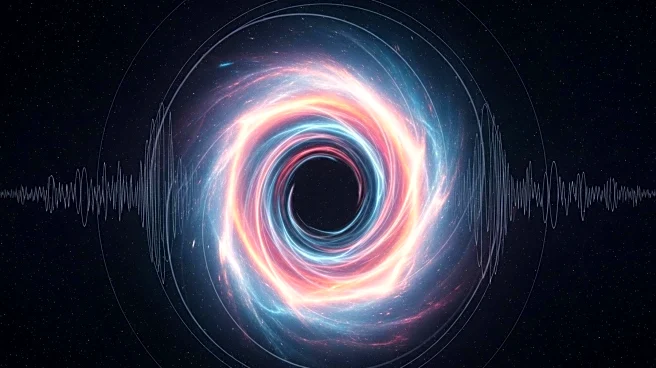What is the story about?
What's Happening?
A team of researchers from the Chinese Academy of Sciences has proposed that a gravitational wave event detected by LIGO and Virgo, known as GW190521, may have been caused by a black hole collision in another universe. This hypothesis suggests that the collision created a temporary wormhole connecting the two universes. The event's short duration and lack of a typical inspiral phase support this theory, although it remains speculative. The researchers developed a waveform model to simulate the signal of a black hole collision echoing through a wormhole, which matched the observed data better than conventional models.
Why It's Important?
If validated, this hypothesis could revolutionize our understanding of the Universe and the nature of black holes. It introduces the possibility of inter-universal connections and challenges existing theories about gravitational waves and black hole mergers. This could lead to new insights into the fundamental structure of the Universe and the potential for multiverse interactions. The research also highlights the need for further exploration of gravitational wave phenomena and their implications for cosmology.
What's Next?
Further research and peer review are necessary to assess the validity of the wormhole hypothesis. Scientists may conduct additional observations and develop more sophisticated models to explore the potential for inter-universal connections. This could lead to new theoretical frameworks and experimental approaches in the study of gravitational waves and cosmology.

















